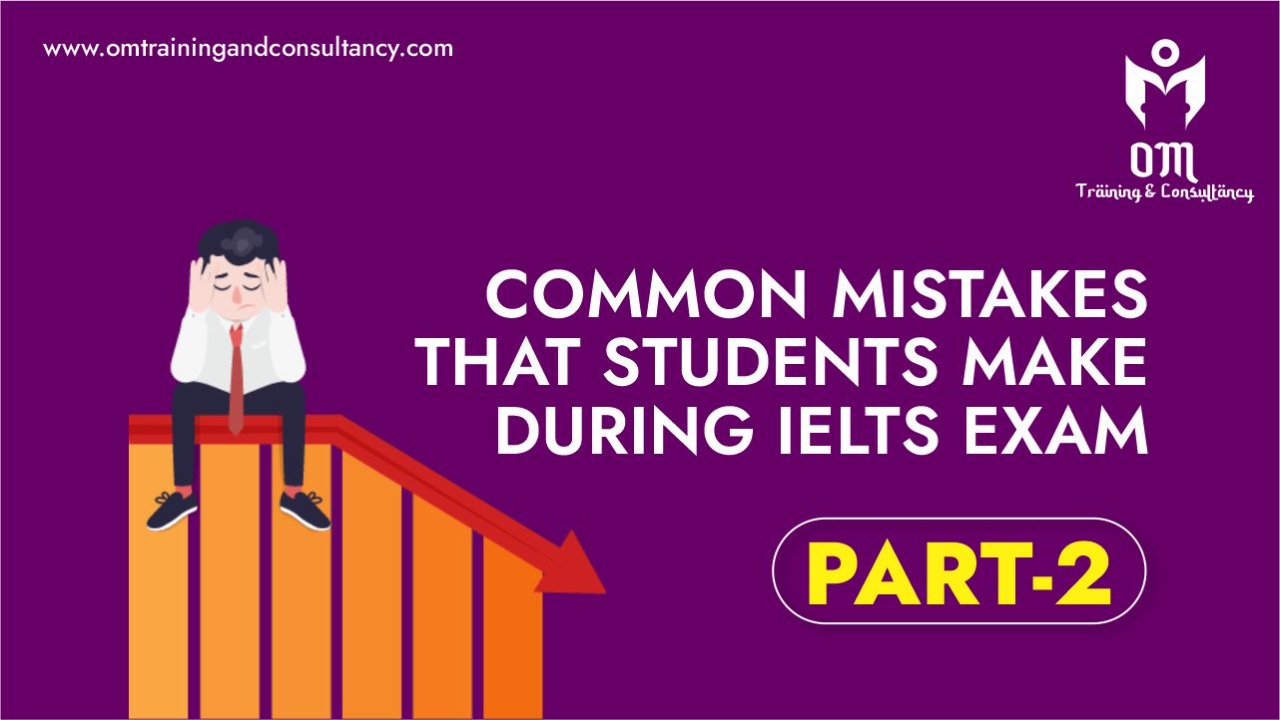In the previous blog, we enlightened you about the common mistakes in the IELTS listening and writing sections. Today, we are going to discuss the remaining parts of the IELTS Exam and tell you about the common mistakes that an aspirant makes as well as how to avoid them. We the Best IELTS training center in Dubai are here to enlighten you with our blog.
Speaking in IELTS
The frightening IELTS speaking test! It causes applicants a great deal of anxiety because they will be confronted with a real-life examiner! But don’t be too concerned. Simply avoid the following typical blunders:
- Speaking too quickly:
You undoubtedly believe that speaking English too slow is the worst error you can make, but speaking English too fast is even worse. There are several reasons for this, but speaking quickly can lead you to make a lot of mistakes and run out of ideas to discuss. This is especially problematic in part 2 of a speaking test because you will only have one minute to talk.
- Overcorrecting oneself:
“Last week, I go to… I meant I went to…” could be an example. This is beneficial, but if you do this regularly, it will reduce your fluency and cause greater problems than a few little errors.
- Using remembered phrases:
We learn pieces of language like “Hello, how are you?”However, we will need to use it in a natural way later. Many IELTS applicants, however, memorize sentences, which seem evident and strange after a while. They’ve all been heard before by examiners. You may think the phrase “it’s a double-edged sword” is smart, but it’s a cliche.
- Repetition of phrases:
During the IELTS exam, it’s easy to feel self-conscious. You may worry and repeat yourself out of anxiety, especially while confronting an examination. You believe your response is too brief, so you add more… but this recurrence is ineffective and can damage your score. Instead, try to come to a logical end with your replies.
IELTS Reading Test
We’ve finally arrived at the reading test. This section of the exam can be a real pain, partly because students must respond to so many questions in a limited amount of time. Simply make sure to avoid the following typical IELTS blunders, and you’ll be well on your way to success:
Reading every word:
The IELTS exam isn’t about reading for enjoyment, and you don’t need to know the entire word in a sentence, so don’t waste the time reading every single word. Instead, work on your skimming and scanning abilities. This would save you a significant amount of time.
In the text, look for specific words and phrases:
You could check the answer to the question, “When were the pyramids built?” The terms “century” and “built,” on the other hand, are not used in the text. Instead, you’ll need to find a year (or a rough period) as well as a synonym for “built,” such as “created.”
Using T/F/NG questions and making assumptions:
TRUE / FALSE / NOT GIVEN is a prevalent problem style in the IELTS reading test. An issue that arises in this situation is that a stated sentence may be logically true or incorrect, but it is not provided in the text. Even if you know the answer is correct, you need to choose NOT GIVEN until it is mentioned expressly in the passage.
Only reading the first line of a paragraph:
The first line of the paragraph is known as the topic sentence since it usually contains the paragraph’s theme. Some lecturers advise that you only read these if you’re skimming, however, this can lead to you missing essential details. Even while you should still aspire to read rapidly, you should read more thoughtfully.
Conclusion:
We understand that it takes time to master any language but when at the time preparing for the IELTS Exam, the stakes are much higher. In this case, you need to fool-proof the methods of practice to avoid any mistakes that could cost you your results. And, by paying attention to these common mistakes and correcting them, you can qualify for IELTS pretty easily.
